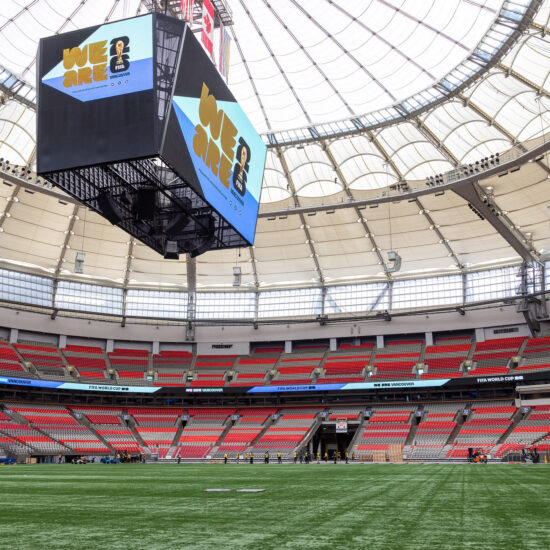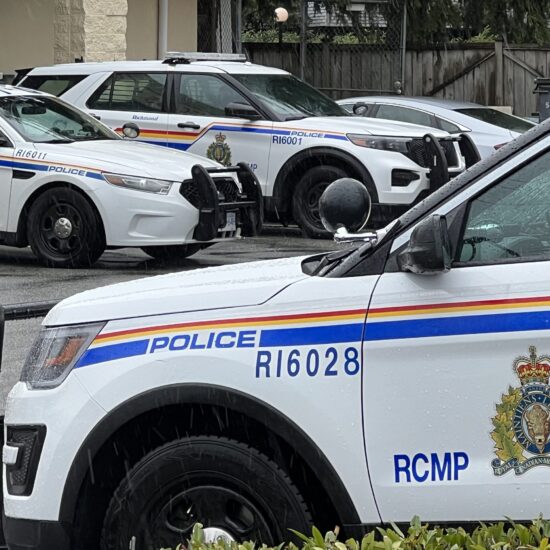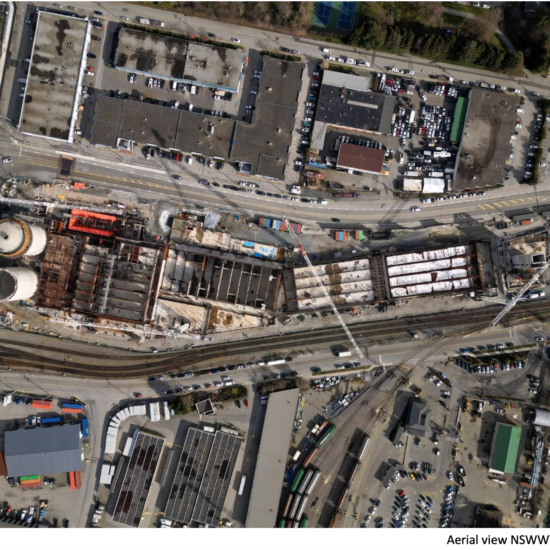
Bob Mackin
An RCMP squad known for arresting protesters at logging and pipeline blockades assisted the North Vancouver detachment last summer during protests by opponents of sexual orientation and gender identity (SOGI) lessons in schools.

Mountain Highway overpass protest against SOGI (Ministry of Transportation and Infrastructure)
A senior officer from the Community-Industry Response Group (C-IRG) contacted an operations manager with the province’s highways department, after a judge granted the B.C. Ministry of Transportation and Infrastructure an injunction last May aimed at stopping weekly protests on the Mountain Highway overpass above Highway 1.
“One of the functions of this unit is addressing injunctions within the province,” explained S. Sgt. Jason Charney in a July 6 email to Michael Braun, obtained under the freedom of information law.
“I have been tasked with assisting the North Vancouver RCMP detachment with the injunction which is currently in place for the Mountain Highway overpass. I was hoping that we could meet next week and go over the injunction.”
The remainder of the paragraph was censored because the ministry feared disclosure would reveal information about policy advice and law enforcement.
Braun was away from the office, so Charney arranged to meet with Lower Mainland district manager Elena Farmer. Farmer cancelled the meeting because she learned senior transportation ministry officials would meet with counterparts in the Ministry of Public Safety and Solicitor General and RCMP.
“I also want to inform you that yesterday during our interactions with the people on the overpass, they indicated that next week would be the one year anniversary, and that there would be [an] influx of people attending and they would possibly also on the Fern Street overpass,” Charney wrote to Farmer on July 7.
The North Vancouver RCMP had issued a statement on June 21 that said the anti-SOGI protests “do not align with the RCMP’s core values,” but its role was to balance public safety with protections in the Charter of Rights and Freedoms for peaceful, lawful and safe demonstrations.
In late March of 2023, graffiti containing messages opposing Prime Minister Justin Trudeau and vaccines appeared near the overpass. Braun’s email a month later indicated that the protesters were not being aggressive. The ministry posted relevant sections of the Transportation Act and Trespass Act against gathering on the overpass in late April, but the protests continued.

Mountain Highway overpass protest against SOGI (Ministry of Transportation and Infrastructure)
Some protesters have returned this year, but with new banners opposing B.C. government drug harm reduction programs.
Charney did not respond for comment. But S. Sgt. Kris Clark, spokesperson for the B.C. RCMP, did. Clark said the C-IRG mandate has evolved and has since rebranded as the Critical Response Unit B.C. (CRU-B.C.) due to increased calls for assistance across B.C.
“No charges have been laid in relation to the Mountain Highway overpass protests,” said Const. Mansoor Sahak, public information officer with the North Vancouver RCMP. “CRU-B.C. did assist last July but generally they are called upon by detachments to assist with large protests. CRU-B.C. could assist at any point but currently there are no protests occurring on the overpass so therefore no police response is needed.”
CRU-B.C. has absorbed the Police Liaison Team and its goal is to minimize police enforcement at emotionally charged events..
“While originally created to respond to gas and pipeline-involved protests, the C-IRG has been deployed to logging protests, homelessness protests, has overseen anti-COVID mandate demonstrations (aka convoy) and been deployed to natural disaster events across the province including floods and seasonal wildfires as well,” Clark said in a prepared statement.
C-IRG has also assisted with policing at some anti-Israel protests since Oct. 7. “When called upon, the CRU-B.C. supports local police of jurisdiction with public safety and enforcement at political demonstrations,” Clark said.
The reorganization and rebranding happens during a Civilian Review Complaint Commission systemic investigation of C-IRG’s governance, structure and operations. The federal watchdog is focusing on injunction enforcement activities at Salisbury Creek, Fairy Creek and Wet’suwet’en traditional territory protests.
The B.C. Civil Liberties Association and Union of B.C. Indian Chiefs are part of a coalition that has demanded the federal and B.C. governments disband C-IRG over allegations of arbitrary arrests and detentions.
Support theBreaker.news for as low as $2 a month on Patreon. Find out how. Click here











